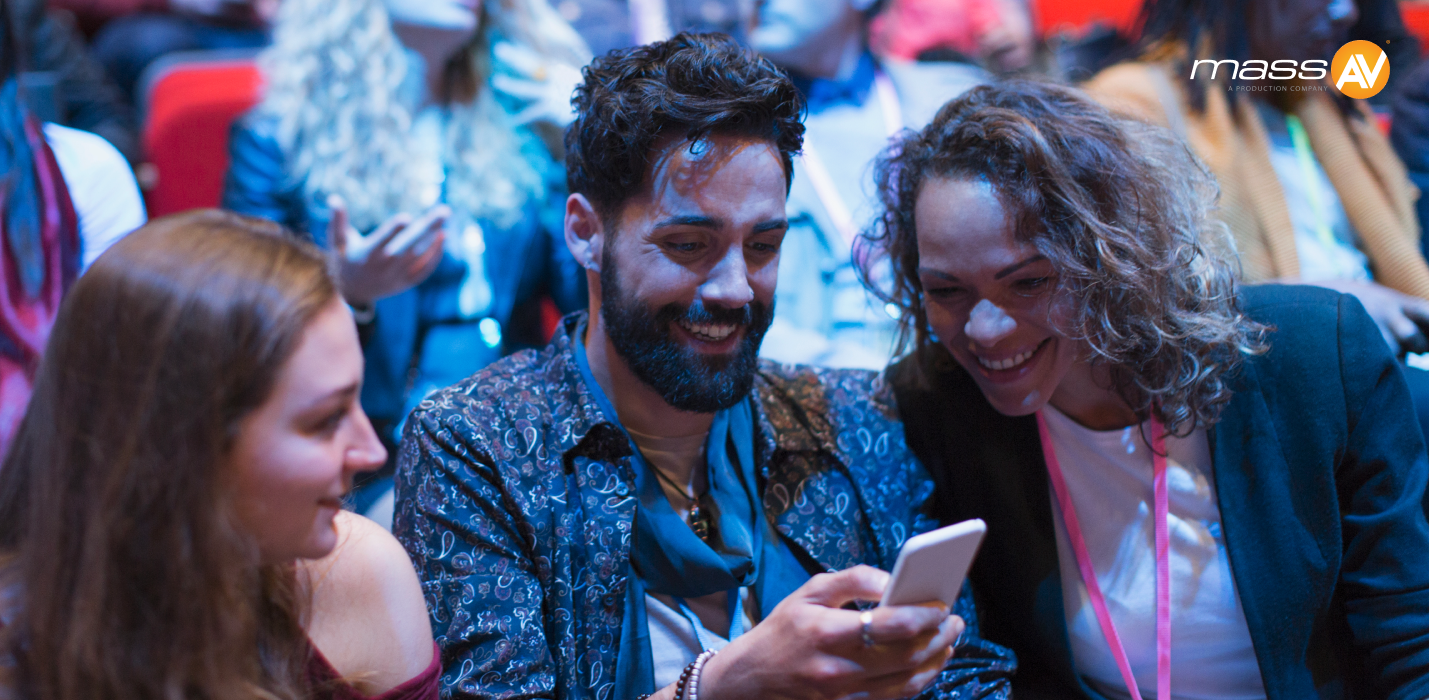Brand marketing is an essential part of planning any corporate event. When attendees enter the convention center, they should see your company logo on event passes, banners, and on the swag bag they pick up at registration. Most event planners and corporate marketing teams use the tried and true branding tools for events, but as technology evolves, so do your branding possibilities.
Social media is a huge player in extending brand recognition during events. Here’s how your company can use social media to keep your brand front and center not only throughout your event but also in the weeks beyond.
Start Before the Event
There are only so many ways you can post, “Get tickets now!” across your social media channels. Instead of leaving social promotion as an afterthought, think more holistically about how social media can help get the word out. Share photos of preparations, quotes and headshots from keynote speakers, and video interviews with important people behind the scenes. Get your keynote speakers, company leadership, and other VIPs promote the event on their own channels to create even more buzz.
Create buzz about your event by establishing an event-specific hashtag early, and then share that hashtag and relevant content with event partners and sponsors to blast out on their own channels. Entice attendees to share a social post about buying tickets at checkout and prompt engagement by asking your followers what they’re most looking forward to at the upcoming event.
Brand Marketing Online and Offline
Brand marketing doesn’t end at the venue door. It should be part of your online and offline efforts to reach people. Brainstorm ideas that will prompt engagement throughout the event and grab people scrolling through their phones during breaks. For example, let attendees know you will be making announcements and offering special giveaways during the event exclusively on social, requiring attendees to “check in” or mention the event to enter.
After the event, keep the conversation going with Twitter chats and LinkedIn groups where attendees can continue to tap the event community for tips, advice, and networking.
As mentioned above, establishing an event hashtag will make it easy for your partners, sponsors and vendors to promote your event on social media. Because hashtags can extend the reach of posts, those associated with your event have a built-in incentive to use it.
If you are attending an event as a vendor, make sure to tap into the online activity surrounding the event early. Attendees will be asking for nearby restaurant recommendations or which sessions to attend, so it helps your team garner excitement about your booth and products when you join the community. Get in on the conversations early using your brand’s account to ask questions and to let attendees know your company is going to be there.
Use Stories to Tell the Story
Instagram stories were once dismissed as a rip-off of the popular photo sharing app Snapchat, but since its launch, Stories has grown rapidly. In 2019, 500 million users now use Instagram Stories every day and more than one-third of businesses are using Stories to promote their business.
This fleeting and visual format is a great way to provide attendees and potential attendees quick updates, announce new speakers, and show them behind-the-scenes. Companies also have the option to put ad dollars behind Stories, getting these popular posts in front of even more people.
Use Influencers
When it comes to marketing and spotting a sales pitch, people are more savvy than ever. The ultimate goal is to present an air of authenticity that entices, rather than pressures, people to become customers. This has led to an explosion of social media influencers. Tap into this marketing trend by inviting them to your event. Grant them VIP access and provide plenty of great photo opportunities. They will use their giant platform to get the word out and add credibility to your event.
Influencers can also keep the corporate event top of mind after the vendors have packed up and gone home. Hiring influencers connected to your brand to write follow-up posts will show people who skipped the event all they missed, and help those who did attend loop back and reengage.
Brand Messaging for Gen Z
Gen Z is the name of the generation of people born after 1998. These young people are entering their 20s and the workforce, becoming influential consumers at a rapid pace. They currently make up 25% of the population and will be a bigger wave than both Millennials and Baby Boomers. So how do you create event experiences that will appeal to this generation?
These digital natives are not familiar with a world before smartphones and Google. Staying connected online and on multiple platforms is a requirement for this generation. Create a space for them on social media, and they will come. However, make sure your brand marketing doesn’t come off as heavy handed.
Members of Gen Z want their brands to act like advisors, not salespeople. Make sure your invitation to join a conversation or be a part of the event community is genuine. Offer advice on how to get the most out of the event, and where these audience members should be going after the event to network and have fun with peers.
Whether you are trying to attract a new generation of workers or a niche group of attendees, your company should integrate a genuine social-media-driven conversation into your brand marketing efforts. By leveraging both online and offline channels as part of your event marketing, you increase the throughput of your brand messaging and improve affinity and awareness for your organization and services. Using Social Media for brand marketing enhancement has the ability to reach more people and engage them longer than other traditional brand marketing efforts, and if done right can be much easier for your team, too.
